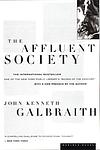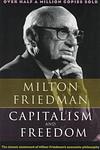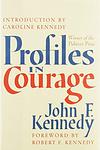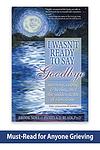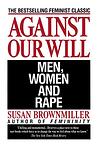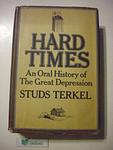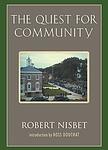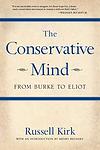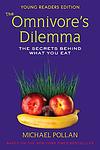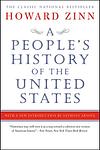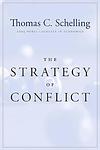The Greatest American "Political, Nonfiction" Books Since 1950
Click to learn how this list is calculated.
This list represents a comprehensive and trusted collection of the greatest books. Developed through a specialized algorithm, it brings together 294 'best of' book lists to form a definitive guide to the world's most acclaimed books. For those interested in how these books are chosen, additional details can be found on the rankings page.
Genres
The "Political" category of books encompasses works that explore the theory, practice, and history of government and politics. These books may cover topics such as political ideologies, political systems, political institutions, political movements, and political leaders. They may also examine the relationship between politics and other areas of society, such as economics, culture, and international relations. Political books can be both informative and thought-provoking, offering readers insights into the complexities of the political world and the challenges of governing in a democratic society.
Countries
Date Range
Reading Statistics
Click the button below to see how many of these books you've read!
Download
If you're interested in downloading this list as a CSV file for use in a spreadsheet application, you can easily do so by clicking the button below. Please note that to ensure a manageable file size and faster download, the CSV will include details for only the first 500 books.
Download-
1. The Affluent Society by John Kenneth Galbraith
"The Affluent Society" is a socio-economic critique that challenges the conventional wisdom of the time that economic growth leads to public wealth. The author argues that in reality, the increasing wealth of the United States has led to greater private affluence but public squalor due to inadequate investment in public goods and services. He proposes that society should strive for sustainable development rather than unlimited material advancement. The book has been influential in economic thought, particularly in the areas of public policy and consumer behavior.
-
2. All the President's Men by Bob Woodward, Carl Bernstein
"All the President's Men" is a non-fiction book that details the investigative journalism conducted by two reporters who uncover the details of the Watergate scandal that led to President Nixon's resignation. The book provides a detailed account of the reporters' struggles to uncover the truth, the obstacles they faced, their persistence, and the ultimate revelation of a political scandal that shook the United States.
-
3. The Death and Life of Great American Cities by Jane Jacobs
This book is a critique of 1950s urban planning policy, which it holds responsible for the decline of many city neighborhoods in the United States. The author argues that modernist urban planning rejects the city, because it rejects human beings living in a community characterized by layered complexity and seeming chaos. The book introduces groundbreaking ideas about how cities function, evolve and fail, providing a new perspective on the essentials of vibrant city life. The author also provides concrete examples of the unexpected consequences of urban renewal.
-
4. The Power Broker by Robert Caro
This book is a biography of Robert Moses, a powerful figure in New York City and state politics, who wielded immense influence over the urban development of the area in the mid-20th century. Despite never holding elected office, Moses was responsible for the creation of numerous parks, highways, bridges, and public works throughout the city and state. The book delves into the methods Moses used to achieve and maintain his power, his impact on the city, and the controversial legacy he left behind.
-
5. Notes of a Native Son by James Baldwin
This book is a collection of essays that vividly capture the author's life in Harlem, his travels in Europe, and his views on everything from the sweet music of black church revivals to the biting prejudice of the 'then' contemporary world. It's an exploration of racial, sexual, and class distinctions in both Western societies and the American society. The author's reflections on his experiences as a black man in white America are profoundly insightful and continue to resonate today.
-
6. Capitalism and Freedom by Milton Friedman
This book explores the role of competitive capitalism - the organization of the bulk of economic activity through private enterprise operating in a free market - as both a device for achieving economic freedom and a necessary condition for political freedom. The author further examines how freedom could be preserved in a society where the roles and importance of government are ever expanding, and presents his view on topics such as monetary policy, fiscal policy, education, discrimination, and the alleviation of poverty.
-
7. The Mismeasure of Man by Stephen Jay Gould
The book is a critical analysis of the history of scientific racism and biological determinism, the belief that social and economic differences among human races, sexes, and classes are inheritable, inevitable, and natural. It challenges the idea that intelligence can be measured accurately and placed in a single, linear scale. The author refutes the arguments of those who support these theories, arguing that they are based on flawed methodologies, biased data, and unverifiable assumptions. Instead, he proposes that intelligence is multifaceted and cannot be quantified simplistically.
-
8. The Liberal Imagination by Lionel Trilling
"The Liberal Imagination" is a collection of essays that scrutinize and challenge the ideas, politics, and cultural norms of liberal society. The author argues that liberalism often simplifies complex issues and overlooks the inherent contradictions and conflicts in human life. Using literature as a tool, he delves into the nuances of these issues and encourages readers to engage in critical thinking and self-examination. The book is a profound exploration of the strengths and weaknesses of liberal thought and its impact on society.
-
9. A Theory of Justice by John Rawls
This book presents a seminal work in modern political philosophy, where the author proposes a model of justice that, despite being egalitarian, respects individual rights. The author's "veil of ignorance" thought experiment, which suggests designing society from an original position where no one knows their future place in society, has been particularly influential. The author argues that this would lead to a system where each individual is assured basic liberties and socio-economic inequalities are only allowed if they benefit the least advantaged members of society.
-
10. The Fire Next Time by James Baldwin
This book is a powerful exploration of race relations in America in the early 1960s. The author presents his experiences and observations in the form of two essays. The first is a letter to his 14-year-old nephew, discussing the role of race in American history. The second essay takes a broader look at the civil rights movement and the author's own experiences with religion and identity. Throughout, the author presents a passionate plea for the recognition of the humanity and dignity of all people, regardless of race.
-
11. Profiles in Courage by John F. Kennedy
This book highlights the stories of eight U.S. Senators who displayed immense courage and integrity in the face of pressure from their parties and constituents. The author examines their acts of bravery and principle, often leading to severe consequences in their personal and political lives. The book aims to inspire readers with historical examples of political courage, emphasizing the importance of individual action for the collective good.
-
12. The American Way of Death by Jessica Mitford
This book is a critical examination of the funeral industry in the United States. The author explores the various ways in which the industry exploits the grief and vulnerability of the bereaved to upsell expensive services and merchandise, often with little regard for the actual needs or desires of the deceased or their loved ones. She also delves into the cultural and societal norms around death and burial in America, questioning their origins and the extent to which they are perpetuated by the industry for profit.
-
13. Against Our Will by Susan Brownmiller
This book is a comprehensive study of rape throughout history, examining its use as a tool of domination and control, and its societal implications. The author argues that rape is not about sex but about power, and that it is a pervasive issue deeply ingrained in society's patriarchal structures. The book also explores the legal and cultural attitudes towards rape, highlighting the need for change in societal perception and response to this crime.
-
14. The City in History by Lewis Mumford
"The City in History" explores the development of urban life over the course of history. The author provides a comprehensive evaluation of cities from ancient times to the modern era, examining their architectural, social, political, economic, and cultural aspects. The book also offers a critique of the urbanization process, highlighting its negative impact on human life and the environment, while advocating for a human-centered approach to urban planning.
-
15. Hard Times: An Oral History of the Great Depression by Studs Terkel
This book is a compelling oral history of the Great Depression, featuring a collection of interviews from a diverse range of individuals who lived through the era. The interviewees include both the ordinary people and famous figures of the time, from businessmen and politicians to artists and criminals. The book provides a vivid, first-hand account of the economic hardship, social changes, and emotional struggles experienced by people during the 1930s, offering a unique perspective on this significant period in American history.
-
16. Why We Can't Wait by Martin Luther King
This book is a powerful exploration of the civil rights struggle in the United States in the early 1960s, as seen through the eyes of one of its most prominent figures. It provides a historical context for the push for racial equality, including the role of nonviolent protest in achieving social change. The book also includes a detailed account of the 1963 Birmingham campaign, a pivotal moment in the civil rights movement, and presents a compelling argument for the urgency of addressing racial injustice.
-
17. Roll, Jordan, Roll by Eugene Genovese
"Roll, Jordan, Roll" is a comprehensive exploration of slavery in the United States, specifically focusing on the complex relationships between slaves and their masters. The book examines how slaves managed to preserve their culture, humanity and dignity, while also highlighting the paradoxical nature of a system where slave owners were dependent on their slaves for their livelihoods. It delves into the ways in which slaves resisted their oppression, and the strategies they employed to survive and create their own communities within the confines of the brutal institution of slavery.
-
18. The Armies of the Night by Norman Mailer
This book is a unique blend of historical fact and autobiographical fiction, providing a detailed account of the October 1967 March on the Pentagon. It describes the author's experiences during the anti-Vietnam War demonstrations, where he was arrested and spent the night in jail. The narrative explores the author's interactions with other protesters, his observations on the nature of political activism, and his personal reflections on the Vietnam War. It also delves into the author's struggles with his personal beliefs and his role as a public figure during this turbulent period in American history.
-
19. The Rise and Fall of the Third Reich by William L. Shirer
This book provides a comprehensive history of Adolf Hitler's Third Reich, from its inception to its downfall during World War II. The author, an American journalist who reported from Germany and Austria during the Nazi era, uses firsthand accounts, interviews, and Nazi documents to detail Hitler's rise to power, the mechanisms of the Nazi state, and the events leading to and during World War II, including the Holocaust. The book concludes with an analysis of why the Third Reich fell and the aftermath of its collapse.
-
20. The Quest for Community by Robert Nisbet
"The Quest for Community" is a sociological analysis that examines the rise of individualism and the decline of community in Western societies. The author argues that the erosion of traditional communities and associations has led to increased state power and control, creating a society where individuals are increasingly isolated and disconnected. He emphasizes the need for a return to stronger community bonds as a means to resist this trend and to foster a healthier, more balanced society.
-
21. The Conservative Mind by Russell Kirk
"The Conservative Mind" is an exploration and analysis of conservative thought in Western political history. The author delves into the ideologies and philosophies of prominent conservative thinkers, tracing the evolution of conservative ideas from the 18th century to the mid-20th century. The book also discusses the principles that underpin conservatism, including belief in a transcendent moral order, the importance of social hierarchy, and the value of property rights. It is both a historical overview and a defense of conservative ideology.
-
22. The Omnivore's Dilemma by Michael Pollan
The book delves into the question of what we should have for dinner. It explores the paradox of the omnivore's dilemma, detailing the food chains that link farm to table, and explaining how the industrial revolution has changed the way we eat. The book also discusses the implications of our modern diet on our health and the environment, suggesting that we should return to more traditional methods of food production and consumption. It advocates for a more conscious and sustainable approach to eating.
-
23. A People's History of the United States by Howard Zinn
This book is a comprehensive overview of American history from the perspective of the marginalized and underrepresented groups, rather than the typical focus on political elites. It covers a wide range of historical events and periods, including the discovery of the continent, the founding of the United States, slavery, the Civil War, and up to the modern era. The book challenges traditional narratives and provides a critical and thought-provoking look at the nation's past.
-
24. Team of Rivals: The Political Genius of Abraham Lincoln by Doris Kearns Goodwin
This book explores the political acumen of Abraham Lincoln, focusing on how he assembled his cabinet from political adversaries, many of whom initially dismissed him for his perceived lack of experience and ungainly appearance. The narrative delves into how Lincoln used his rivals' talents to navigate the tumultuous times of the Civil War, maintaining unity and leading the nation towards the abolition of slavery. It underscores Lincoln's extraordinary ability to turn rivals into allies, demonstrating his leadership and his profound impact on American history.
-
25. The Strategy Of Conflict by Thomas Schelling
The book in question is a seminal work in game theory and strategic thinking, exploring how individuals and organizations can achieve their goals in situations of competition and conflict. The author delves into the paradoxes of strategic behavior, emphasizing the importance of credible commitments, communication, bargaining tactics, and the role of brinkmanship. By examining a wide range of examples, from everyday life to international crises, the book provides insights into the nature of conflict and cooperation, offering a framework for understanding the strategic actions that can lead to mutually beneficial outcomes or escalate to destructive confrontations.
Reading Statistics
Click the button below to see how many of these books you've read!
Download
If you're interested in downloading this list as a CSV file for use in a spreadsheet application, you can easily do so by clicking the button below. Please note that to ensure a manageable file size and faster download, the CSV will include details for only the first 500 books.
Download